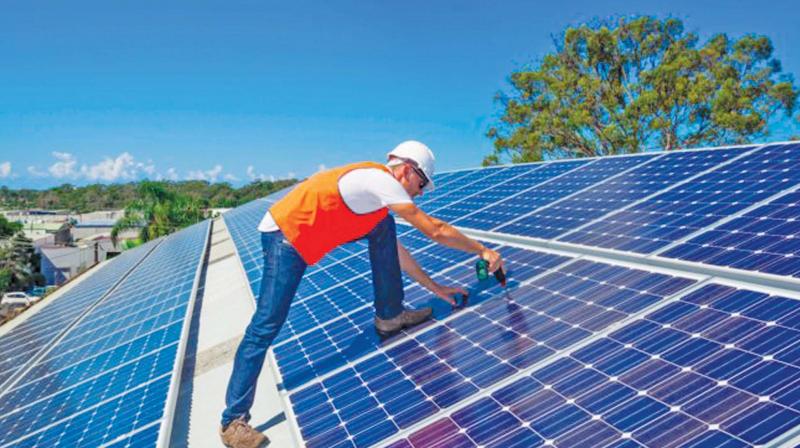Chennai: Solar power to boost farmers' income
One of the problems faced by farmers is lack of reliable daytime electricity.

Chennai: Green policy think tanks are pushing for the adoption of pro-farmer solar power policies that would power the needs of the farmers in operating the pump sets besides enhance their income through grid-connected solar pumps.
This would reduce the farmers' dependency on diesel-operated pumps, besides enable them to earn additional income by selling excess power to the grid.
Shortly after Mukhyamantri Kisan Aaye Badhotri Yojna (MKABY) was launched in Delhi, state governments of Tamil Nadu and Maharashtra also came up with solar-power based solutions for their farmers.
"One of the problems faced by farmers is lack of reliable daytime electricity. This can easily be addressed through high-quality solar pumps that provide them with power during the day. As the pumps are net-metered, farmers could draw power from the grid in case of an excessively cloudy day or when the pumps are down due to a technical issue," an official pointed out.
Also, ensuring high-quality, round-the-clock grid power to farmers prevents the over-exploitation of groundwater, besides reduces their reliance on subsidised power. Further, farmers could earn money for the power injected into the grid, quite similar to the rooftop net-metering scheme, it is reasoned.
According to sources, Tamil Nadu government hopes to revolutionise the farm sector through the Tamil Nadu Energy Development Agency (Teda), by aiming to provide one-lakh grid-connected solar powered agriculture pumps. The move would also help to reduce the subsidy burden for the State government.
At present, 6 lakh solar pumps are under wait list and the state government is only able to energise a small portion of it. According to policy note on the State Energy department, between 2013-14 and March 31, 2018, a total of 2,295 of 5 HP AC solar pumps were energised at a subsidy of about Rs 80.76 crore. Solar pumps could add as much as 15 giga watt and more, to India's 100 GW of solar by 2022 target, it is said.

